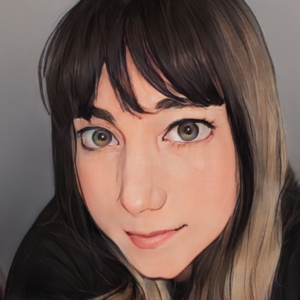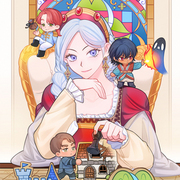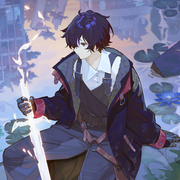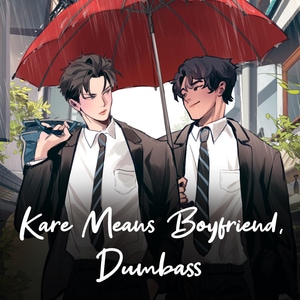The Neyagawa International School was on sprawling grounds with green lawns and occasional well-manicured flower beds. It was sharply divided into two campuses. In the new building was the Japanese Program for the locals. The old building housed the International Program for foreigners like me.
But then there was Nakatomi—an anomaly—the only native Japanese speaker in the entire International Program so far as I knew. Why wasn’t he across the quad in the newer building with the rest of the Japanese kids? I wanted to know, but I wasn’t about to ask. He’d already shown himself to be a real pain in the ass.
When I sat down beside him, Nakatomi grudgingly moved so he wasn’t completely sprawled over our shared desk space. But he still left barely enough room for me. After getting settled I pulled out my school crap: thin textbooks, soft-cover notebooks with odd-sized paper, sharpened pencils, ball-point pens, the works.
During homeroom, after Ohara established goals for the day and went over the schedule for the week, she called me up to her desk. “I need to ask you. Speaking about after school clubs, which one will you be joining?”
“Clubs? None.” I’d never been one for extracurriculars. They involved people. “I come here for school. That’s enough group activity for me.”
She shook her head. “Clubs are mandatory for all students. A graduation requirement and a way to build our happy community. Here. Look through the list and see what you might be interested in.”
Photography club, music club, archery club, baseball club—no thanks. Martial arts club, mahjong club, math club…
“What does the math club do?”
“Math club works together to solve puzzles and complex mathematical problems. They compete against other schools. Last year they traveled to Tokyo for a tournament.”
Tokyo sounded interesting. More interesting than Neyagawa anyway. And math had always come easily. “Sign me up.”
After I took my seat again, Ohara started into the first real class of the day: philosophy and moral education. It wouldn’t have been my first choice of classes, but at least it was something new. I certainly hadn’t studied up on the origins of Confucianism as a movement and the modern influences on Japanese society.
I tried to listen. I really did.
But Ohara had a soothing voice, and at times I needed to fight the urge to doze. Jetlag was a bitch. I was pretty sure my deskmate noticed this. He had a smug look on his face when he caught me startling awake after drifting off.
Still, I managed to answer all of Ohara's questions. Even while half-awake I was able to pay enough attention to follow along. Nakatomi didn’t seem to have any trouble keeping up either. Neither of us voluntarily answered anything, but if Ohara called on us we knew what we were talking about. Not so much with the rest of the students. They were either supremely inattentive or grossly unintelligent. Probably both.
I was anxious to change classes and get a break from Nakatomi’s irritating expressions and hostile presence when the bell rang, but that didn’t happen. The bell did ring, but we never left class.
We all stayed in room 3B while Ohara and a few other teachers cycled through for the different subjects: ethics, science, government, English literature...
We didn’t even change classrooms for lunch.
I ate my ham and cheese sandwich in silence. It was possibly the worst lunch I’d ever packed. The bread was terrible. I originally thought it was whole wheat or rye bread, but it was something else—a soft bread sweet with molasses. I managed to choke my food down anyway. I wouldn’t make the same mistake again.
One of the boys from the back of the classroom tried to engage me in conversation. “Hey, Williams…”
“Eating.”
I managed to quickly and efficiently establish that I was not interested in small talk. Or any other kind of talk.
The one thing Nakatomi had going for him, other than his impeccable appearance, was the fact that he said absolutely nothing to me. Not one word.
During breaks between classes, students gossiped, shared pictures from their recent spring break trips, checked their social media feeds, and traded snacks. Even with so few people, it had the familiar din of a highschool hallroom during passing time.
In the afternoon we were split for Japanese language classes by level. This meant at least I got a break from Nakatomi, which was a bonus. I wondered what they did with him. Presumably he was already fluent.
I enjoyed the break from my pal, but the class itself was miserable.
Within moments it became very clear that I was not suited at all for the beginning Japanese class. All the other students had been living in Japan for months. It might have been the level one class, but it was not intended for beginners.
The teacher directed me to follow one of the Japanese teaching assistants for a more precise assessment of my language skills.
I could have saved him a lot of time on the assessment process. I couldn’t write a damn thing, and the only words I knew in Japanese were konnichiwa, sayonara, and gaijin. Maybe a few others from the manga I read. But nothing useful.
When he was done assessing the fact that I couldn’t read, write, or speak Japanese worth a damn, the TA left me with some parting words, “You’re in 3B? Stay away from Nakatomi. You know, he was kicked out of his last school after setting a fire in the classroom.”
“No shit?” Who sets fire to a classroom? And why wasn’t he in juvie instead of some expensive, underpopulated, unprestigious school?
I got back to our classroom before Nakatomi. Before my desk mate came back, the German girl in the seat next to mine leaned over and said in a low voice: “Nakatomi is new here too. He lived in New Zealand for years. Got back not too long ago. This is already his second school.”
“Great. Thanks for the information.” She didn’t say it directly, but it was clear from her tone: Nakatomi was bad news.













Comments (18)
See all